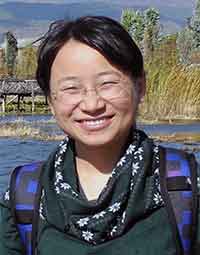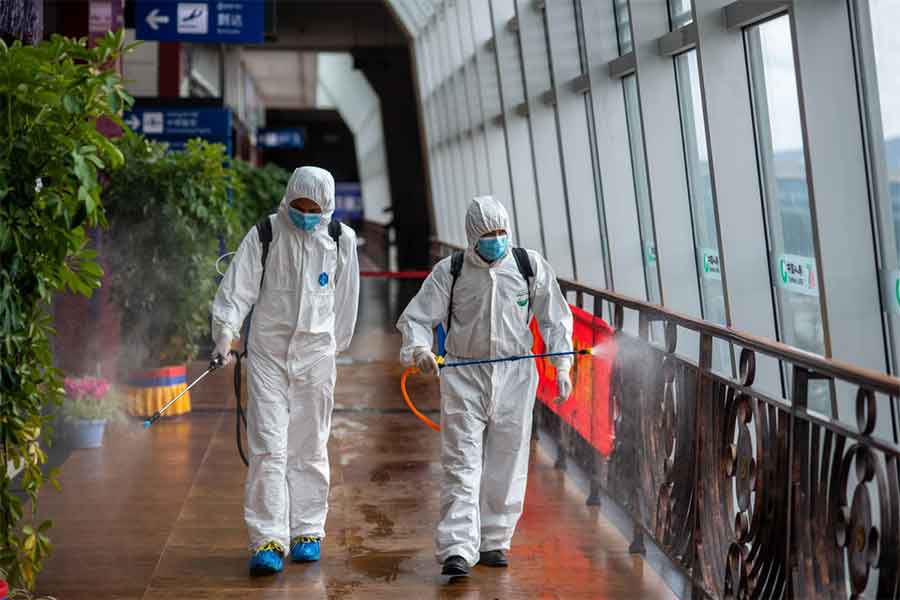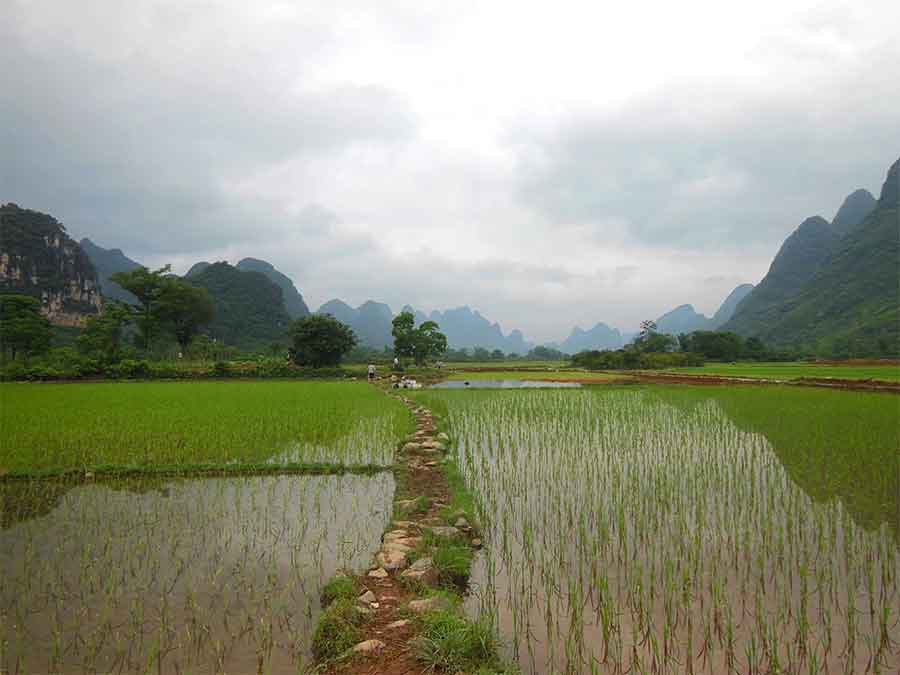 Food And Rights Talk is a series of interviews with PAN Asia Pacific (PANAP) partners across the globe to find out the situation of rural peoples, in relation to food security and human rights, amid the COVID-19 pandemic.
Food And Rights Talk is a series of interviews with PAN Asia Pacific (PANAP) partners across the globe to find out the situation of rural peoples, in relation to food security and human rights, amid the COVID-19 pandemic.
We talked with Hongyan Yang, executive director of the Pesticide Eco-Alternative Center (PEAC), an organisation dedicated to reducing the use of harmful pesticides and promoting ecological alternatives, based in Kunming City, Yunnan Province of China.
PAN Asia Pacific (PANAP): What is the extent of the COVID-19 pandemic in your province?
Hongyan Yang: Currently (as of July 9), there are around 85,400 people infected by COVID-19 in China. But in Yunnan Province, there are just 187 infected people. So you can see that’s a big difference. The situation is not so bad. Since the end of February, everything seems to be back to normal.
PANAP: Why do you think that there is lesser impact of COVID-19 in Yunnan compared to other places in China?
Yang: There are many reasons. First, as soon as COVID-19 broke out at the national level, the government controlled the transportation to stop the mobility of people, so the virus has not been transmitted to Yunnan so much. I think that’s the most important reason. There is also a huge distance from Beijing and Wuhan, about 3000 kilometers. There is strict control when people who are from other places enter Yunnan. When people from other provinces enter they need to input their documents into the system and undergo 14 days monitoring. Everyone entering public places needs to input their information using mobile phones. The government can monitor if people had been to other provinces or if they have health problems. So there are a lot of measures to prevent the virus from entering.
PANAP: What has been the impact of COVID-19 on farmers?
Yang: Our organisation works with farmers. Since the start of the COVID-19 pandemic, we have interviewed our farmers to learn about the problems they are facing. According to the farmers, one of the biggest impacts is that they cannot go out to work in urban areas. Normally, in rural areas after the Winter harvest and the Spring festival (Chinese New Year), some farmers especially the young farmers go to city to work for several months and then they go back to the villages when field work begins. But this year, because of COVID-19, they had to stay at home and wait for the announcement of the government. But the proportion of farmers that work in the city is not so high so the impact is not so much. Overall, COVID-19 did not seriously impact agriculture and the people of Yunnan. Right now, most farmers are beginning to prepare for ploughing and seeding for the new season as usual.
PANAP: Did they face any difficulties in getting their produce to the market?
Yang: Yes, because of transportation control, it was not so easy for farmers to sell their products to the cities as before. So transportation was the biggest challenge for them. But since the end of February, step by step, transportation began to be opened to the public. Now everything is back to normal.
PANAP: What is the food security situation both in the rural areas and in the cities?
Yang: For rural areas there is no problem because most are smallholder farmers who can sustain their lives through agricultural production. For the cities, the period with the most serious impacts was when COVID-19 was spreading and because of transportation control, we had limited access to some fresh supplies. But the government undertook some strategies to ensure that fresh food products are available. For instance, the government provided pork to supermarkets every several days. It also said that transportation for food supply should not be stopped even during transportation control, because we need to ensure food supplies. But because of different reasons, some transportation for food supplies couldn’t get to the cities as fast as before. But I think now everything is back to normal.
PANAP: Has there been some food wastage like we have seen in other countries?
Yang: According to my experience, we did not see that problem. This is because Yunnan Province is 90 percent mountainous area and our farmers are mostly engaged in smallholder farming. Our production is mainly to meet the requirements of Yunnan Province, not for export to other countries.
PANAP: Do you think that is kind of self-sufficiency is an advantage?
Yang: Yes.

PANAP: Can you talk a little about this sustainable model of farming?
Yang: Most of the farming in Yunnan Province is ecological or sustainable to some extent. Yunnan is the best place for practicing the agroecological model because of the good climate and mountainous area. A large portion of the mountainous area has been developed by smallholder farmers into the agroecological model of farming. We do not have large-scale farming and monocultures. To some extent, farmers here don’t rely on chemicals so much. So this is good for the health of farmers and consumers.
PANAP: Do people have access to COVID-19 testing and health care?
Yang: Yes, people can go to the hospital and apply for COVID-19 testing. Everyday in rural areas the government does popularisation about COVID-19 through radio and village broadcasts. It doesn’t matter if you’re in the urban or rural area, people have access to COVID-19 information and testing. And in case somebody is infected by COVID-19, when they go to the hospital for healthcare, the whole process is free. The government will pay.
PANAP: So with COVID-19 controlled, everything now is really back to normal in Yunnan?
Yang: Yes, everything has been returned to normal including businesses, agriculture, tourism, universities, primary and secondary school, everything. But everywhere we go, we need to input information. And everyone is required to wear masks in public places. People believe that if they take these prevention measures by themselves, they have nothing to fear.###








Discussion about this post